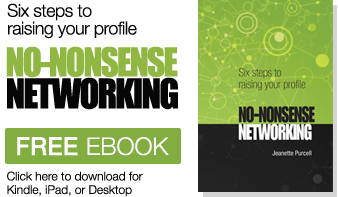Ten top tips for getting on Board
There has been a flurry of discussion recently around women in the boardroom. This follows the publication of the Davies Report which called on the FTSE 350 companies to increase the percentage of women at the board table to 25% by 2015. Currently 18 FTSE 100 companies have no female directors at all and nearly half of all FTSE 250 companies do not have a woman in the boardroom.
The discussions have covered a range of questions: Are imposed quotas a good thing? (See my earlier blog.) Is there any evidence that companies with more diverse Boards are more effective? Why don’t women make it to the top? Do women simply have different aspirations and views of what success means?
These are all important questions, but I have seen very little practical advice emerging from the Davies debate. If a woman is interested in getting a seat on a board, what steps should she take? Here are some top tips (with thanks to Sue O’ Brien, CEO of Norman Broadbent for her input) . And guess what? This advice applies to men too!
- Do some research first. What industry and types of companies are you interested in joining and in what capacity? You need to be able to clearly articulate what it is you are looking for before you begin your search.
- Be clear about what you are offering to the companies you have chosen. Why should they be interested in you? What can you add to their Board? What are your distinctive skills and qualities and what evidence can you produce to support your past successes?
- Use Head Hunters to help you in your search. But be prepared (see above) before you meet them. They will respond if they can see you have done your homework.
- When dealing with Head Hunters don’t wait for them to take the initiative on the agreed actions and follow up. You need to do your bit and they will take you more seriously if you are taking the lead where you can.
- If approaching a company direct to enquire about a Board role consider sending them a short narrative in the form of a bio rather than your CV.
- Protect your CV. It is tempting to pass on your CV to anyone who looks like they may be able to help you. But hand it over with care. Your CV is your brand. Do you know who it is going to? How will it be presented?
- Make sure the Board role you are considering or are offered is the right one for you. Does the position really fit with your background and experiences? What will this company do for you? Do you subscribe to their values? Be brave enough to turn the position down if it doesn’t feel right.
- When considering a role seek out those people who have recently left the Board to see if they’ll chat to you. You might get a more accurate account of the company from them.
- Don’t under estimate the time involved. It is hard work if you are going to do a proper job. Experts estimate that you can expect to spend 25 days a year on Board work as a Non-Executive.
- Network, network, network. Make it known that you are looking for a Board appointment. Someone somewhere will be on the look out for talented Board members.
Good Luck! If you get the right position it will be a fulfilling and valuable learning experience.
Both comments and pings are currently closed.


















